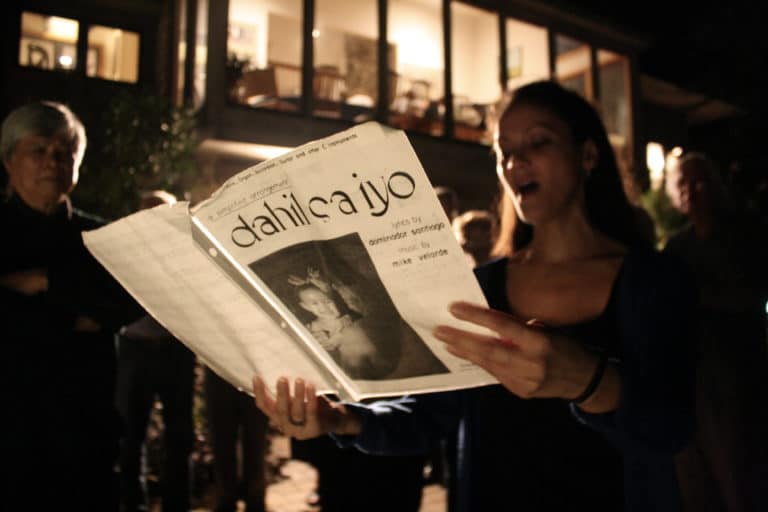
Image by Elvert Barnes.
Imperfect Music, Profound Connection: A Bridge to Kinship and Compassion
Music has accompanied human civilization. It’s been an essential storytelling element that keeps the tribe alive, keeps the identity of the tribe alive. Music and poetry are inextricably linked to our humanity.
— Mohammed Fairouz
There’s an old Catholic ritual that’s part of life in rural areas of the Philippines called the pabasa. Literally translated, pabasa means “the reading,” but in truth, it’s more of a vocal marathon. For three days straight, members of the community (usually elders) gather to sing an epic poem recounting the death and resurrection of Jesus, working in shifts for a chance to eat and sleep. It’s an exhausting task, but not once is the collection of voices carrying this poem allowed to weaken, waver, or die.
I attended one for the very first time last spring, during a trip to visit family in February. Though religion plays quite a small role in my own life these days, standing at the back of the crowd pouring forth this collective, plaintive cry, I reveled in the passion behind the ritual.
The song was far from pretty. These voices were loud, raw, unsettling, a little out-of-sync, the meter of the poem sometimes leading to rhythmic inelegance. But, the point of the pabasa is not beauty — at least, not beauty in any classic sense, in pleasing melodies or skillfully deployed voices. Instead, what beauty there is in the pabasa is in the meaning it bears for its participants: it’s a physical performance of sorrow, thankfulness, joy, and hope, all rolled into one. It is a small sacrifice in itself.
The story of the Christ’s passion doesn’t need to be sung to be shared, to be understood. A simple reading or recitation would not be an adequate vehicle for this faith and passion. Usually I experience musical frisson from fast fingers on the keys of a piano or from skillful manipulation of cello strings. But here it arose from the baring of souls.
Creating and consuming music is a primal act, an act of self-expression that is essential to human nature. At its core, music is not about technical proficiency or mastery of a craft, which are, if anything, mere means to this end: embodying and releasing emotion, and capturing the abstract conditions of life, the joys and tragedies that color all human experience when language fails to encompass their complexity and breadth. My college violin teacher once gave me this startling piece of advice:
“Stop trying to play things perfectly. Perfection doesn’t move me. I’d much rather you played it badly with feeling than perfectly and with no feeling at all.”
When culture, politics, and history are stripped away, only our shared humanity is left. Music — and literature, and all art — embodies that commonality, and, in making it visible, allows us to recognize it in each other. It can open our eyes, minds, and hearts to the experiences and identities that unite us across superficial divides. It can inspire us to kinship and compassion.
At the pabasa, the collective power of music, literature, and faith shone through in full force. In that moment, I recognized the difference between the pabasa singers’ beliefs and mine as one of those superficial divides. I felt united to them on a profound level — a level at which differences in faith and practice had no bearing on our emotional proximity to one another. They were thankful for life, they had hope for the future, and they were full of joy at being present in the world despite the constant deluge of chaos and white noise. All this was palpable in the soulfulness of the ritual, of the music. Perhaps not as graceful as a Chopin nocturne, but just as unfailingly beautiful in the sense of kinship it inspired in all the people it touched.
Share your reflection